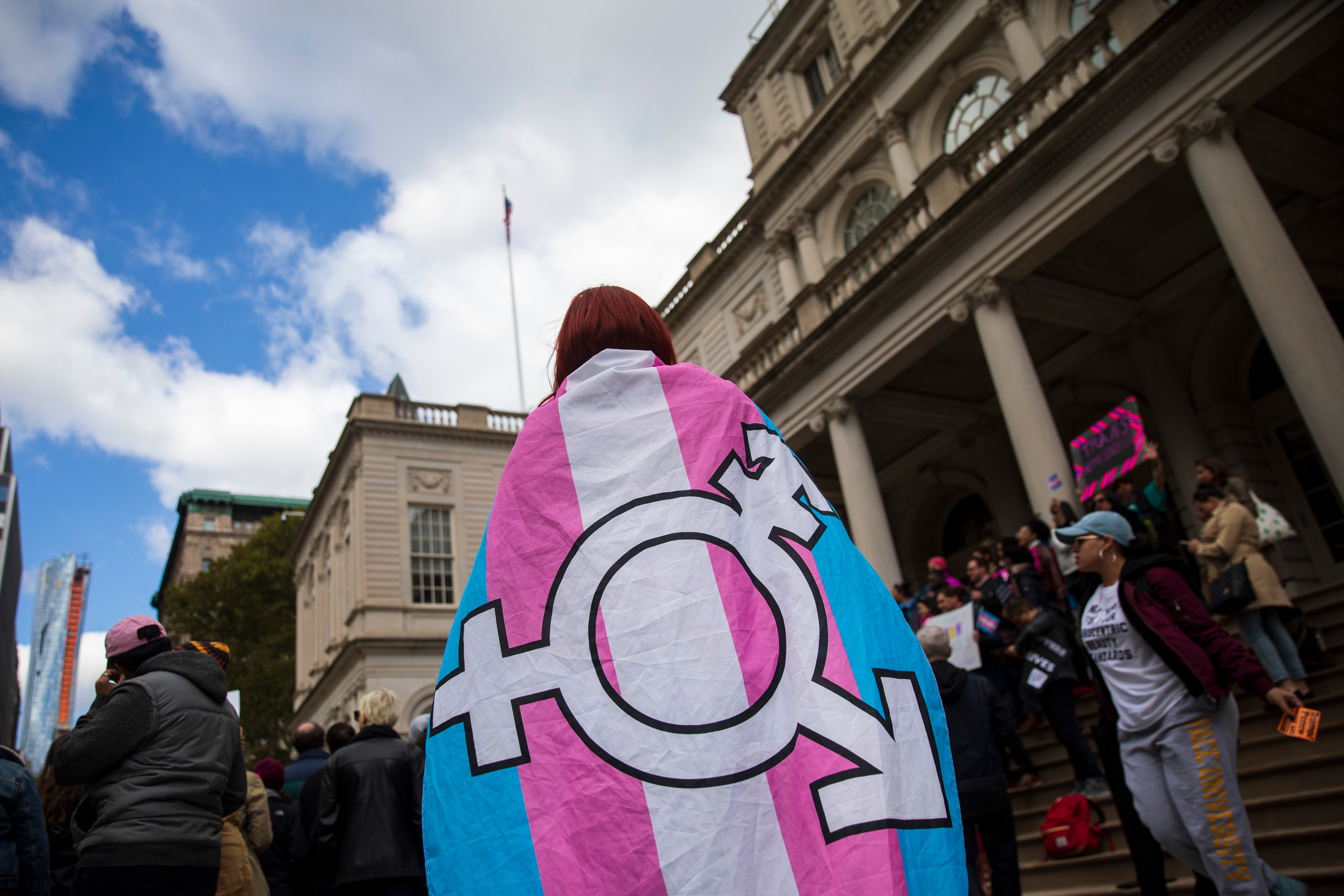The Independent's journalism is supported by our readers. When you purchase through links on our site, we may earn commission.
People think it’s too easy for trans kids to get treatment. My daughter’s experience says otherwise
My daughter lives in a blue state in a metropolitan area and has supportive parents. It’s still been hard to jump through all the endless hoops


Your support helps us to tell the story
From reproductive rights to climate change to Big Tech, The Independent is on the ground when the story is developing. Whether it's investigating the financials of Elon Musk's pro-Trump PAC or producing our latest documentary, 'The A Word', which shines a light on the American women fighting for reproductive rights, we know how important it is to parse out the facts from the messaging.
At such a critical moment in US history, we need reporters on the ground. Your donation allows us to keep sending journalists to speak to both sides of the story.
The Independent is trusted by Americans across the entire political spectrum. And unlike many other quality news outlets, we choose not to lock Americans out of our reporting and analysis with paywalls. We believe quality journalism should be available to everyone, paid for by those who can afford it.
Your support makes all the difference.My daughter came out as trans in October. Since then, we’ve been trying to get her the healthcare she needs to feel confident, happy, and safe. It hasn’t been easy.
No doubt, this revelation will leave some readers confused, or even angry. When you tell people that you’re trying to help your trans child get healthcare, many people will accuse you of being a bad parent. And no wonder: public discussion about trans children often makes it sound like being trans is a dangerous, edgy new trend among youth, like vaping, from which parents must protect their valuable innocents.
A couple of years ago, the Atlantic published a brow-furrowed cover story that worried that some young people who wanted to transition from female to male were simply confused about gender roles. This year, many states have either passed or considered passing bills which would criminalize puberty blockers, hormone replacement therapy (HRT) or gender confirmation therapy for children under 16, supposedly in aid of protecting children in a world where being trans has become unacceptably “normal” and “trans lobbies” are all-powerful.
But anyone who has tried in good faith to get healthcare for a trans child knows that these arguments are nonsense. Trans people are neither powerful nor normalized. They are a small, mostly despised minority. Medical providers often stigmatize them, and there are huge barriers to accessing desperately needed care.
My own 17-year-old daughter is in an unusually supportive family, living in a blue state in a major metropolitan area. Both my wife and I have done a lot of reading on trans issues, and we long ago let her know we would support her if she were trans.
Even so, telling us she was trans was hard for her. She was (very reasonably) worried that she would face discrimination throughout her life, and that being trans would negatively affect her budding career as an actor. Coming out was not some sort of trendy way to win friends and be cool. It was difficult and painful and brave.
Once she told us she was trans, we tried to get her access to support and healthcare as quickly as we could. That turned out to be a lot more difficult than we’d hoped. The first care provider we worked with was constantly and deliberately misgendered her, and asked her wildly inappropriate, explicit questions about her sexuality. This was horrible, but, unfortunately, not surprising. Trans women, as biologist and trans activist Julia Serano writes, “are routinely sexualized… within psychological, social science and feminist discourses, and in society at large.” The “society at large” here includes care providers.
We got rid of that doctor immediately. Others were better, but not exactly great. One primary care physician, trying to be supportive, complimented my daughter on her appearance. But my daughter wanted access to care, not comments on her looks, and found the doctor condescending and unhelpful. Locating a therapist versed in trans issues was even more of a struggle. We couldn’t find anyone who took our insurance; a Chicago clinic well-known for LGBT care was supposedly in our network but wouldn’t give us an appointment for months. Finally, a friend who worked in LGBT healthcare referred us to a trans therapist who was looking for patients. My daughter loves her — but we only found her through luck and having the right connections.
The therapist, after about a month, suggested that my daughter would benefit from hormone therapy. We were able to make an appointment with a clinic relatively easily… or so we thought. When we actually spoke to the doctor, it turned out he was only qualified to provide care to people over 18. My daughter hadn’t been flagged as underage, presumably because the clinic dealt with so few youth.
The reason for that became clear as we answered more questions. The clinic was only allowed to provide HRT if both parents consented — and they emphasized that this was the case even if one parent was estranged. We kept assuring them that both of us were onboard with care, but it was clearly an unusual enough situation that they had trouble believing us. Our appointment with their pediatrician is on December 30; we’re hoping to get our daughter hormone therapy sometime in January.
So, even with very supportive parents in a large city with a child older than 16, getting access to HRT has taken more than three months. That’s not counting the time it took for my daughter to decide she was ready to come out — and presuming there are no further delays. As my daughter told me when I interviewed her for this piece, “Getting healthcare has not been difficult so much as it has been tedious. Endless waiting, scheduling intakes, jumping through meaningless hoops, each slightly more time-consuming than the last.”
Of course, some might argue that three months isn’t so long, and that the barriers to care we’ve experienced are appropriate for such a big step as hormone replacement therapy. But what they’re not taking into account is that trans people who do not get treatment experience serious, painful distress. Trans people who do not transition often suffer from dysphoria — an acute sense of discomfort that one’s body and social presentation are out of line with one’s gender. It can lead to serious mental health symptoms, like anxiety, depression, and dissociation. It is not itself a mental health condition, though, since it can be cured through physical means — namely transition.
For my daughter, dysphoria is “something I am near-constantly struggling with,” she told me. “It waxes and wanes in intensity but is always something I am thinking about. It can make it difficult for me to speak, function, think clearly, or just get out of bed. The relief of getting rid of it would be something almost unimaginable to me. It is akin to imagining what I would do if I woke up tomorrow to find out I was a multi-billionaire.”
We don’t want our daughter to suffer; we’re trying to get her the treatment she needs. But the US healthcare system is slow and ineffective. That’s particularly true for trans people, who face discrimination, misunderstanding and outright bigotry from society, medical professionals and very often parents.
“I do not know what life would be like without this burden of dysphoria,” my daughter says. We want her, and all other trans youth, to find out. For that, we need better, more responsive healthcare, less barriers and a less divisive conversation round what should be a private, personal matter.
Join our commenting forum
Join thought-provoking conversations, follow other Independent readers and see their replies
Comments